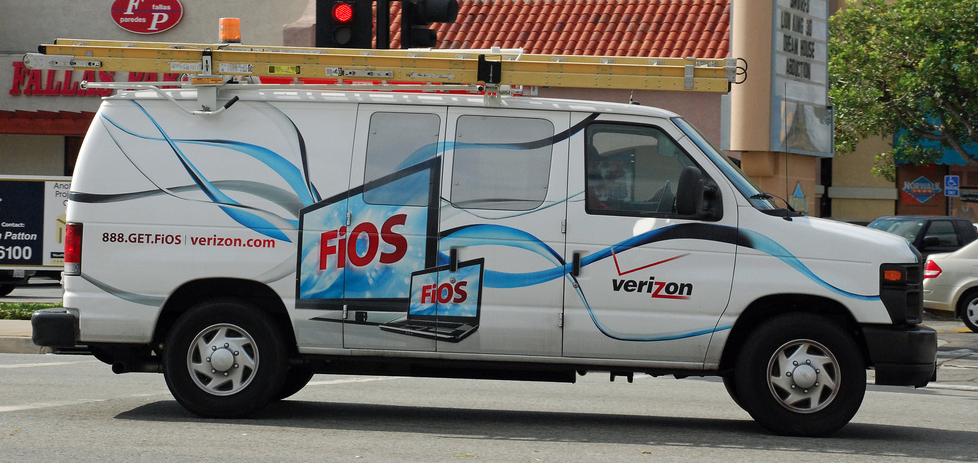New Jersey Thinks 4G And Wired Broadband Are The Same, Lets Verizon Off The Hook

Fewer New Jersey residents will be seeing vans like this, as the state has let Verizon off the hook for its obligation to provide access to high-speed Internet for all. (photo: SoCal Metro)
As we mentioned last week, back in 1993, Verizon (then New Jersey Bell) made a deal with the state that lifted some regulations on the industry in exchange for a promise that the company would provide access to high-speed Internet service to 100% of New Jersey residents by 2010.
2010 came and went and a number of rural parts of the state are still living with dial-up or subpar DSL. And even though the original deal was made in the days of modems and CompuServe, its crafters had the foresight to define broadband as 45Mbps, which is actually higher than many Verizon broadband customers receive today.
In 2012, the state’s Board of Public Utilities said Verizon had failed to meet its obligation, spurring the company into launching a bogus grassroots campaign intended to look like New Jersey residents were in support of Verizon using fake e-mails.
In spite of that, and the thousands of legitimate complaints from actual New Jersey residents, the BPU voted unanimously yesterday to approve a deal with Verizon that would let the company off the hook.
According to the Bergen Record, Verizon will no longer be obligated to provide broadband to residents if they have access to broadband service from cable TV providers or wireless 4G service.
That’s right, 4G — which is less dependable and has a per-gigabyte price that is many times that of wired broadband — is apparently an acceptable substitute.
And once again, a governmental agency has helped to reinforce existing broadband monopolies by giving its stamp of approval to the notion that consumers don’t need competition or multiple providers.
Residents who happen to live in areas not served by cable or wireless broadband can petition Verizon for service, but can only get broadband if at least 35 people in a single census tract each agree to sign contracts for a minimum of one year and pay $100 deposits.
In response to the BPU vote, the Verizon computer that churns out laughably lopsided statements to the press went into operation.
“Today’s ruling is great news for the state’s consumers and builds upon the success of Opportunity New Jersey,” reads a company statement that disregards any shred of something known as the truth.
Want more consumer news? Visit our parent organization, Consumer Reports, for the latest on scams, recalls, and other consumer issues.

